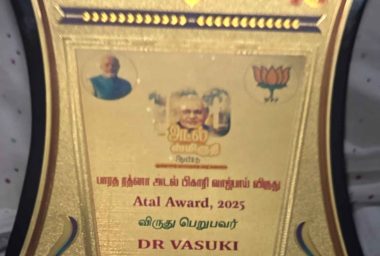-
Authoradmin
-
Comments0 Comments
-
Category
The quality of relationships determines the effectiveness of emotional resilience during any emotional or physical crisis. Proper management of relationships helps to bounce back from adversity so that one can be more flexible and resilient in stressful situations. This case study of Maya illustrates how a break up in a relationship affected the client and how lack of emotional resiliency influenced her attitude and behavior. It also describes the devastating effects it had on her emotional wellbeing. 16 Personality Factor test and Emotional Competence Inventory are the two psychological tools used to gain insight into Ms. Maya’s problems. We come across different types of people and situations. In the course of our daily interactions we may often get hurt. These hurt feelings sometimes remain suppressed and such unexpressed feelings have a great impact on one’s life and relationships. This ability to bounce back is the crux of emotional resilience, which is an essential factor for overcoming any crisis and maintaining a sense of emotional wellbeing.
In this modern world stress is inevitable. It is easy to become frustrated by the great number of pressures that one comes across in day to day life. The reasons for one to become stressful are numerous. This is due to the fact that stress is the source of many negative emotions such as anger, guilt, frustration and anxiety. Unexpressed negative emotions bottled up within the person and take the form of stress which is destructive in nature.
—————————————————————–
*Student Counselor, Icfai Business School, Chennai
It will have a great influence on attitude and behavior. This in turn will affect the quality of relationships with other people. This quality of relationships determines the effectiveness of emotional resilience during any emotional or physical crisis. Proper management of relationships helps to bounce back from adversity so that one can be more flexible and resilient in stressful situations. The most important principle of coping successfully with a stressful event is to believe that it is possible to cope. Resilient people believe that they have the potential for control over their lives; they believe that they can influence the situation. On the whole they have a positive attitude. This is very important as it enables a person to cope with crises efficiently and effectively. Emotionally resilient people tend to display happiness, self-control, optimism, attentiveness, self-assurance, effective communication skills, good interpersonal relationships, compassion and empathy.
This case study illustrates how a break up in a relationship affected the client and how lack of emotional resiliency influenced her attitude and behavior. It also describes the devastating effects it had on her emotional wellbeing.
Case history
Maya is a 22 year old female who has joined a business school to do an MBA program. She graduated from a reputed college with a commerce degree. She was born and brought up in a metropolitan city. Her mother was a high school teacher. Her father was a leading lawyer. Maya reported that she was a happy, attractive child, and in general, her early childhood was “pretty happy”. She was studying in a co-education school. As she had a very conducive home atmosphere and since her parents were encouraging and motivating Maya began to thrive intellectually. Her grades were consistently very good, and she was elected as the school pupil leader. She said that this was the happiest period of her life. Maya also bloomed physically. She became popular with boys. During her final year in high school, Maya had an affair with a boy who was her classmate. She described the relationship as warm and supportive. Like many young people, Maya never discussed her romantic issues with her parents as she was uncertain about the consequences.
She got through in her higher secondary examinations with flying colors and entered a reputed city college to do a commerce degree. They planned it in such a way that her boyfriend also got into the same college. Maya, being an intelligent and hardworking student won gold medals in the first and second year of her degree program. While doing her third year the boy’s parents came to know about their son’s affair and strongly opposed him having an affair with Maya as she belongs to a different religion. They called Maya and abused her and insisted that she keep away from their son. Maya was further shattered when she realized that her boyfriend was not taking any strong stand on this matter and never even tried to console her. He behaved as if it was somebody else’s problem. He started avoiding Maya and kept himself away from her. This had a great impact on her and she was not able to concentrate on her studies. She felt cheated. She couldn’t digest the fact that he had no concern for her and never even tried to console her as they were carrying on for about three years. She became frustrated, withdrawn and often anxious. Her parents were not aware of all this and still trusted that their daughter was focused purely on her studies as always. This made Maya feel very guilty. But at one point of time her parents noticed that she was unusually quiet and asked her why. If anybody asked her the reasons for the change in her behavior she became panicky. She yelled at them or started crying. Her emotions were going haywire which affected her relationship with other people too. Her parents realized that something had gone wrong and tried to probe into the matter. Maya became very cautious and thought that if she would continue to be the way she was they might find out the reason. So she started interacting with her parents as before and started concentrating on her studies as the final examinations were nearing. With great difficulty she wrote her exams and secured just 55%. Maya was very depressed by the results as she was the one who got gold medals in her first year and second year. Later she joined a business school and purposely opted for a center far away from her home town where her ex-boyfriend was living.
After coming to business school, again there were many changes in her behavior and attitude. She preferred to be alone, kept herself away from any social interactions, she would have mood swings– she would be talking about something and suddenly become sad, and during team assignments she would be withdrawn, not participative. When she came to know that counseling facilities were available in her institute she approached the counselor for professional help.
Provisional analysis:
16 Personality Factor test and Emotional Competence Inventory are the two psychological tools used to gain insight into Ms. Maya’s problems.
Emotional Competence Inventory (Vasuki, 2006)
The purpose of this tool is to measure the emotional competence (maturity) in the Indian socio-organizational context. The questionnaire consisted of 50 items out of which 44 items measure emotional competence. There are 6 items which measure the tendency to ‘lie-fake—good’. Subjects are required to choose the responses that best describe how they feel, think and behave with each point on the scale with the words–Always, Mostly, Sometimes, Rarely and Never.
Maya’s responses indicated a low degree of awareness of her feelings, inability to adjust to situations and changes and a negative attitude towards people and life. The overall scores indicated that her emotional competence was low which was very obvious during the first counseling session with Maya.
16 Personality Factor test
This test is used to determine the different personality characteristics of the person. The results of 16PF test indicated that she was an introvert, highly anxious, had poor levels of adjustment, was subdued and had less trust in people. For instance, Extraversion was low. Maya was not socially participative and probably avoided activities involving others. Her attention was generally directed away from others. She was reserved. She preferred a solitary environment. She was a self-reliant person. Additionally, she might avoid situations that require working in a group. Maya presented herself as more anxious than most people. She had no trust in others. This attitude might make her doubt others and suspect the motivation behind their actions or behavior.
Psychological Management
The results of the psychological testing helped the counselor to plan the subsequent counseling sessions. The psychodynamic counseling approach was used in this case. The underlying assumption of this approach is that one’s earlier emotional experiences and their variations are the cause for the present emotional problems. The counselor helps the client to understand the patterns developed from the past emotional experiences and their emotional meaning. This new awareness in turn enables emotional learning to take place. Since Maya’s present problems were mainly due to her past experiences this was chosen as the most suitable approach to deal with her emotional distress.
During the sessions Maya was made to understand the following:
- Breaking up is hard on the person being broken up with as well as on the person ending the relationship. She was made to look at the situation with a new perspective, helping her realize that it would have been hard for her boyfriend too.
- Being broken up with did not mean that there was something wrong with her; the reason might be that something was not working in the relationship. So there was no need to have any feelings of guilt, anger or being rejected. It gave her lot of self assurance.
- She was made to see that there is nothing wrong in venting out natural feelings to family or close friends. The sooner she would express her deep emotions, the sooner she could heal her hurt. She made up her mind to tell everything to her parents.
- When feelings such as guilt, anger, frustration etc are used as a way to cope with a break up ultimately it cultivates resentment and a low morale which could create more pain in the future.
- Acting out in anger or distrusting people is not a healthy attitude. Instead if she let her anger vanish slowly and dealt with the reality the pain would disappear more quickly.
- Handling such issues graciously leaves room for future relationships.
Maya was made to understand that there are ways to handle any stressful situation and bounce back faster from its impact. The need to become emotionally resilient and to have a positive attitude in the face of stress was reinforced.
In order to become a more resilient person, it was necessary for her to work on cultivating these skills and attitudes:
good problem-solving skills
persistence and determination
self-acceptance and acceptance of others
being accountable and attentive rather than impulsive
letting go of the past -learning from past experience to not repeat mistakes
high morale
keeping feelings and emotions under control
optimism instead of pessimism
It was stressed that rather than avoid people she should try to develop a supportive group of friends and family that is essential for maintaining good emotional health. If she wanted to maximize her opportunity to stay balanced she had to find time for close friendships and work hard to maintain them.
It was suggested that she should share her problems with her parents who were very supportive. She could overcome the feelings of guilt by sharing her problems with her parents. It was shown to her that being a person who tends not to share her problems even with close family members made her non-resilient and consequently her stress-coping skills were also inadequate.
Overall the episodes of emotional outburst indicated a total lack of emotional control on Maya’s part. But while she displayed negative emotions like guilt, anger, distrust, pessimism she also had the positive attributes of self awareness, conscientiousness, commitment and achievement orientation and self-confidence. The counselor focused on these positive attributes to support Maya to become an emotionally balanced person. Maya was aware of the social stigma attached to inter caste or inter religious marriages in India. Once she accepted this reality the process of healing began. She took responsibility for her life and how it turned out.
Conclusion:
The emotional mind acts far more quickly than the rational mind. It springs immediate responses without deliberation or analysis. In the case of Maya her emotional mind took over her rational mind, and that she was not able to stay in control over her emotions and in turn affected her emotional health.
Ms. Maya’s story is a real life case study which is a classic illustration of lack of emotional resilience. The inability to ‘spring back’ from a painful situation adversely affected Maya’s psychological wellbeing.
How many adolescent boys and girls can identify themselves with this girl who underwent an emotional upheaval? It is not always that one encounters a pleasant experience in day to day life. We come across different types of people and situations. In the course of our daily interactions we may often get hurt. These hurt feelings sometimes remain suppressed and such unexpressed feelings have a great impact on one’s life and relationships. Our responses could either heal or aggravate the hurt. An emotionally resilient person is aware of how to heal the hurt rather than aggravate it. .
The awareness of one’s own feelings, the ability to recognize and manage these feelings and the ability to ‘spring back’ gives a person a sense of self-control. This ability to bounce back is the crux of emotional resilience, which is an essential factor for overcoming any crisis and maintaining a sense of emotional wellbeing.
Leave A Comment Cancel reply
Recent Comments
Archives
- January 2026
- December 2025
- October 2025
- September 2025
- August 2025
- February 2025
- December 2024
- October 2024
- August 2024
- July 2024
- May 2024
- April 2024
- March 2024
- February 2024
- October 2023
- September 2023
- June 2023
- October 2022
- February 2022
- December 2021
- November 2021
- January 2021
- December 2020
- August 2020
- May 2020
- October 2019
- September 2019
- July 2019
- January 2019
- November 2018
- October 2018
- July 2018
- June 2018
- May 2018
- April 2018
- February 2018
- December 2017
- November 2017
- May 2017




